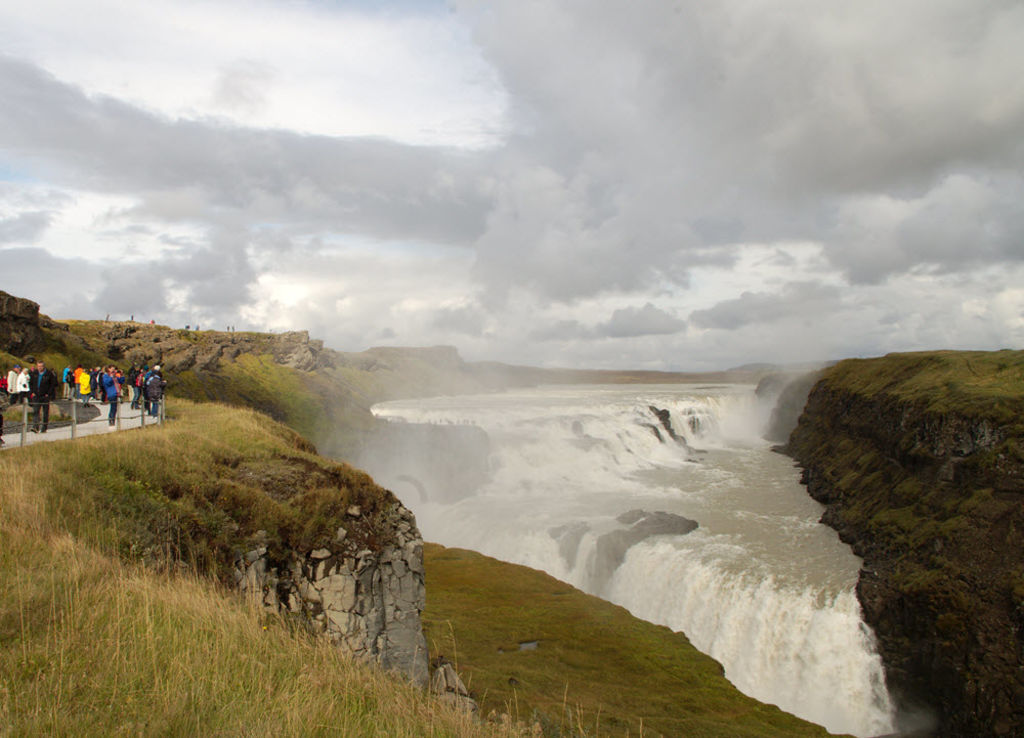
Iceland plans to shut the door on Chinese investors, again
Ragnhildur Sigurdardottir
Chinese investors are eager to jump on Iceland’s tourism gravy train. Trouble is, the locals aren’t that welcoming.
With the North Atlantic nation fully reintegrated into the international community, its centre-right government is now looking to tighten a law that limits foreign ownership of Icelandic land.
The move comes amid a surge in foreign visitors and fresh attempts by an unidentified Chinese entrepreneur to acquire a 12 square-kilometre plot of real estate and build a holiday resort inside the island’s so-called Golden Circle, Iceland’s most popular tourist destination. A far more ambitious Chinese bid was blocked in 2012.
“We have increasing requests for exemptions to buy land,” Justice Minister Sigridur Andersen said by phone in Reykjavik. At the same time, the ministry is facing calls from within her own government and the centre-left opposition for the law to be revised. A draft bill is expected to be submitted during the current legislature, the minister said.
As the law stands, land can only be bought by Icelandic nationals, citizens of the European Economic Area or foreigners who have resided in Iceland for at least five years prior to the purchase. The bone of contention is a provision that allows exemptions to the rules to be granted by the Justice Ministry.
Protectionist Message
Months after engaging in a legal battle with a local venture capital firm over ownership of a famous lagoon, the government risks sending out fresh protectionist messages to the international investment community.
“All restrictions discourage foreign investment,” said Asgeir Jonsson, associate professor of economics at the University of Iceland. “If we just look at the tourism sector, you need to own land to build a hotel or offer recreational activities.”
According to Jonsson, the authorities should set rules that are coherent with normal business practices and be committed to following them. “Clarity and predictability are the most important thing. Every investor dislikes uncertainty or the rules being changed,” Jonsson said.
The land that the Chinese investors are targeting is advertised at $11.4 million and is located 97 kilometres east of the capital, close to Iceland’s iconic Geyser and Gullfoss, “the golden waterfall”.
Bodvar Sigurbjornsson, the lawyer overseeing the transaction, confirmed the interest but would not name the potential buyer.
Tourism Boom
Tourism is now Iceland’s number one export, thanks in part to its location for scenes featuring in James Bond movies and the TV series Game of Thrones. Foreign appetite for Icelandic land comes amid a booming property market (house prices have increased 54.6 per cent in real terms between their December 2009 low and July 2017, according to Statistics Iceland) and the race for the Arctic’s resources.
Olafur Stephensen, of the Icelandic-Chinese Trade Council, says Chinese interest is only set to grow.
“We are experiencing quite a strong increase in business interest from China, and I foresee Chinese investments increasing,” Stephensen said.
The government, for its part, wants to boost its pro-business credentials while acknowledging that feelings about sovereignty run deep in the North Atlantic island. Iceland only fully separated from the Kingdom of Denmark in 1944 and both the justice minister and the prime minister hail from the Independence Party.
Back in 2012, the law prevented Chinese billionaire Huang Nubo from buying a 300-square-kilometre piece of land in the north of Iceland. The current bid is for a much smaller area, but looks set to share a similar ending.











